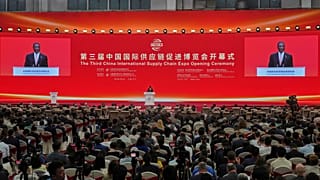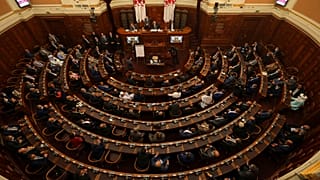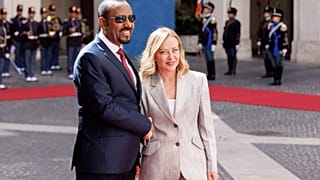Algeria
Algeria granted a humanitarian pardon to French-Algerian novelist Boualem Sansal on Wednesday, releasing the 76-year-old writer after a year-long imprisonment that had sparked international condemnation and exposed deep diplomatic fissures between Algiers and Paris.
The acclaimed author, imprisoned since November 2024 upon returning to Algiers from France, was serving a five-year sentence for "undermining national unity" under anti-terrorism laws.
His case became a global flashpoint as his health, already compromised by cancer, deteriorated in detention.
The European Parliament, French President Emmanuel Macron, and literary figures like Salman Rushdie had repeatedly called for his release, to no avail.
German diplomacy secures breakthrough after French efforts stalled
In a significant diplomatic twist, it was an appeal from German President Frank-Walter Steinmeier that ultimately secured Sansal's freedom.
Algerian President Abdelmadjid Tebboune cited the German request and humanitarian grounds for the pardon, noting Germany would assume responsibility for Sansal's medical treatment.
President Macron publicly thanked his German counterpart for the "decisive" mediation, highlighting how Berlin acted as a trusted third party after direct French appeals failed.
Arrest rooted in geopolitical tensions
Sansal's imprisonment was deeply entangled in regional politics.
His arrest followed an interview where he questioned Algeria's borders, suggesting colonial France had amputated Moroccan territory—a sensitive remark that came months after Paris endorsed Morocco's plan for Western Sahara.
The case underscored a broader crackdown on dissent in Algeria and served as a political lever against France, until German mediation facilitated a resolution based on the writer's dire medical condition.













Go to video
Why Macron wore sunglasses indoors at Davos
01:10
Mahmoud Dicko, the exiled imam defying Mali's military junta
00:56
Algeria reach AFCON quarterfinal after dramatic win over DRC
Go to video
Africa Cup of Nations: Algeria gears up to face DRC
01:08
Gerard Piqué explores Algiers as Kings League expands to Algeria
01:00
Farmers protest at Macron's second home over EU trade deal